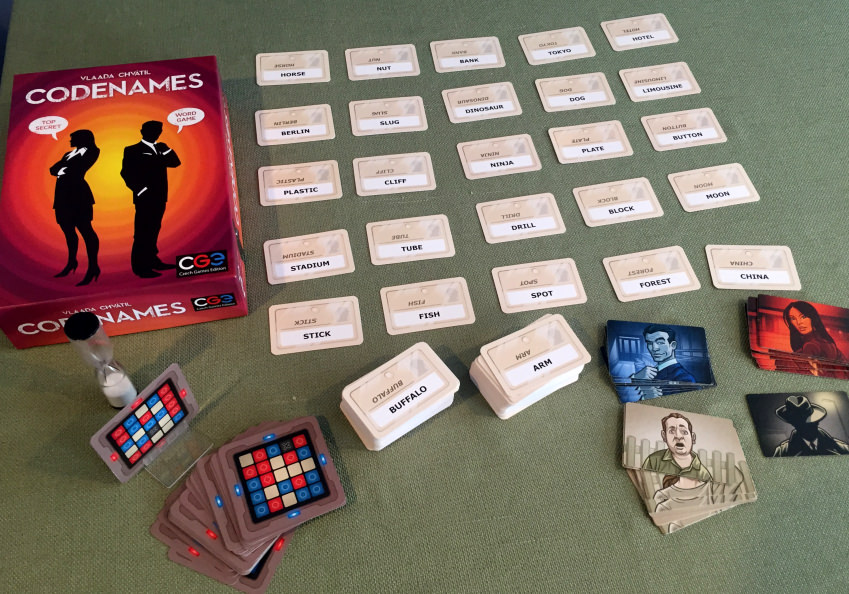By Rachel Lee
Code Names is a captivating board game that is unlike traditional gameplay. Developed by Vlaada Chvátil, it offers a unique and intellectually stimulating experience. This word-based game has become a staple in many households in recent years, and for good reason. At its core, Code Names is a team-based word association game where players take on the roles of “spymasters”, trying to lead their team to uncover the identities of their agents while avoiding those of the opposing team. The game components are simple yet effective—a 5×5 grid of words, each representing a potential agent, a set of key cards, and agent cards that correspond to the words on the grid. One of the game’s strengths is its simplicity and accessibility. The rules are straightforward, making it easy for players of all ages and backgrounds to jump in and start playing. The learning curve is minimal, and the game can be set up and explained within minutes, making it an ideal choice for social gatherings or casual game nights.
What makes Code Names particularly interesting is the depth of strategy that it allows for. The spymaster’s task of providing a one-word clue and a number to guide their team adds a layer of complexity that elevates the gameplay. Coming up with the perfect clue that connects multiple words while avoiding the opponent’s agents requires both creativity and strategic thinking. This dynamic keeps players engaged and fosters a sense of camaraderie as teams work together to decipher the clues. Further, tension builds as players try to avoid the assassin card that instantly ends the game in defeat. This element introduces an element of risk and forces teams to weigh the potential rewards against the potential pitfalls. This delicate balance keeps players on the edge of their seats, creating memorable moments and sparking conversations long after the game has ended.
Another aspect that enhances Code Names’ replayability is the variability in the game setup. With a vast pool of word cards, each game offers a different combination of words and associations. This variability ensures that no two games are alike, keeping the experience fresh and engaging even after multiple playthroughs. Additionally, the game encourages creativity and lateral thinking, allowing players to approach each session with a new perspective. Code Names thrives in its ability to cater to various playstyles. Whether you enjoy the thrill of deduction, the challenge of crafting clever clues, or the satisfaction of solving word puzzles, the game accommodates different preferences. The diverse strategies employed by players contribute to the game’s dynamic nature, making it a good choice for a wide range of audiences.
All in all, Code Names is an example of a game that has struck a balance between accessibility and deep game design. Its simplicity makes it approachable for players of all levels, while its strategic depth and variability ensure that it remains a compelling choice for more experienced players. Whether you’re a casual player looking for a fun and engaging experience or a board game enthusiast seeking a new favorite, Code Names deserves a spot in your game board collection.
